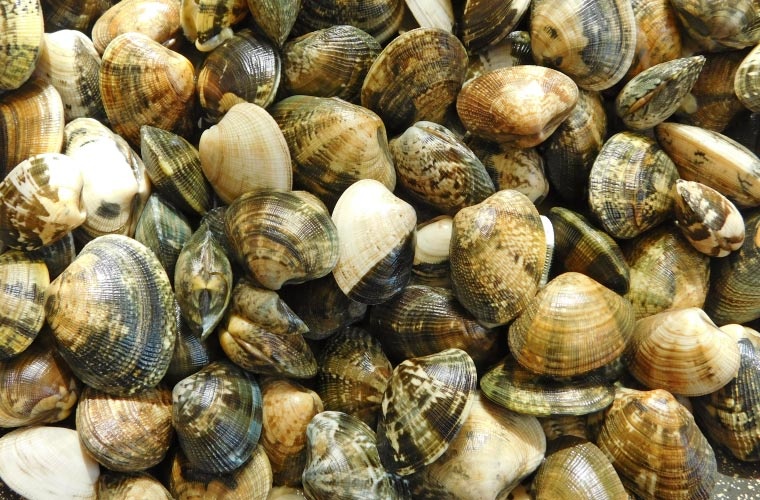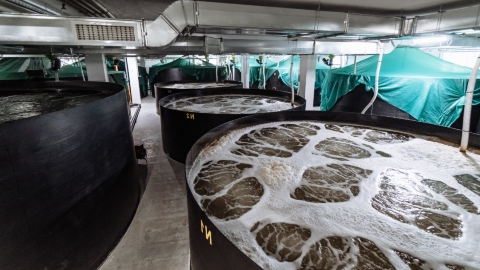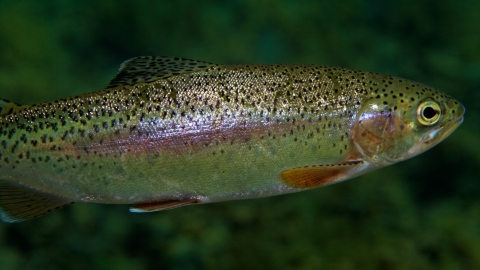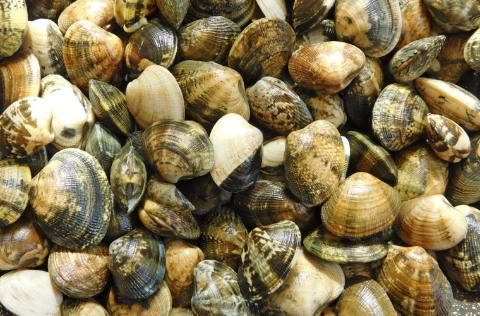
Thermal priming – also known as heat-hardening – is a process where organisms are briefly exposed to sub-lethal temperatures to prepare them for future heat stress. In Manila clams (Ruditapes philippinarum), this strategy can improve resilience to increasingly frequent marine heatwaves, a major threat to aquaculture and coastal ecosystems.
A new study published in iScience, led by researchers from the University of Padua (Italy) under the European IGNITION project, shows that Manila clams preconditioned for seven days at 30 °C survived better and maintained key behaviours during a simulated lethal heatwave, with temperatures oscillating up to 34 °C, compared with unconditioned clams. The experiment reproduced a real event recorded in the Venice Lagoon in 2015, when extreme temperatures caused mass mortalities in benthic fauna.
While the process came with an energetic cost — a lower condition index under normal conditions — primed clams activated stronger antioxidant defences, upregulated stress-related genes and maintained a healthier microbial community in the digestive gland.
The researchers observed that primed clams retained a “stress memory” for more than a month, the longest recorded in molluscs under controlled conditions. After the heatwave, these clams showed higher expression of genes related to thermal tolerance and energy metabolism, and a microbiota dominated by potentially beneficial taxa. In contrast, naïve clams — those with no prior exposure to sub-lethal heat — exhibited more bacteria linked to dysbiosis, an imbalance in the microbial community that can compromise health and increase susceptibility to disease.
Why climate adaptation matters for the Venice Lagoon?
The Venice Lagoon is the beating heart of European Manila clam production. Italy is Europe’s largest producer, with approximately 24,000 tonnes per year, representing 96 % of the EU total. Manila clam farming contributes more than €200 million annually to the Italian aquaculture economy and sustains hundreds of small-scale fishers in the northern Adriatic.
However, this production system is increasingly vulnerable to climate change. Rising summer temperatures and more frequent marine heatwaves pose a serious risk of mass mortalities, as already observed during the 2015 heatwave in Venice Lagoon. Producing clams better adapted to thermal stress has therefore become a strategic priority to safeguard both economic activity and ecosystem services in these fragile coastal environments.
The findings suggest that thermal priming could be applied in hatcheries or pre-fattening facilities to prepare clams for field conditions, reducing mortalities during summer heatwaves. The authors highlight that this approach “holds great promise as a mitigation strategy that can be applied also to other important farmed shellfish species (e.g., oysters, mussels) to help sustain the aquaculture sector against climate change induced threats.”
Reference:
Tucci, C.F., Milan, M., Dalla Rovere, G., Bernardini, I., Ferraresso, S., Franch, R., Babbucci, M., Monticelli, G., Panin, M., Patarnello, T., Bargelloni, L., & Peruzza, L. (2025). Thermal priming mitigates the effects of lethal marine heatwaves on the Manila clam Ruditapes philippinarum. iScience, 28, 113108. https://doi.org/10.1016/j.isci.2025.113108



